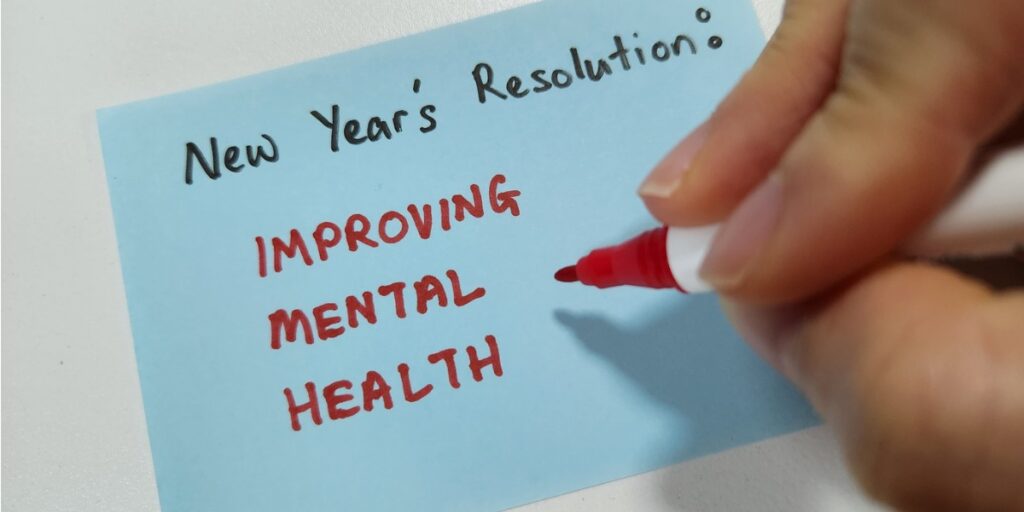We develop comprehensive treatment plans tailored to the specific needs of each client. We specialize in complex psychiatric conditions, co-occurring disorders, and treatment resistant mental health disorders. Our clients learn and practice the relationship and life skills necessary to take charge of their lives, achieve long-term, sustainable recovery, and reach the highest possible level of independence.
Component 1: Intensive Personalized Psychotherapy
One-one-one psychotherapy is the core of our therapeutic approach.
Licensed psychiatrists and clinicians are present at our treatment center during regular hours of operation. These skilled providers bring a depth of professional experience and an evolved understanding of the best and latest evidence-based therapies for mental health, substance use, and co-occurring disorders.
Psychiatry
Upon intake, a CCI psychiatrist assesses each client and follows up with regularly scheduled appointments throughout the course of treatment.
Custom Plans
CCI’s individualized treatment approach means we create customized action plans for each client. We design wrap-around strategies and services with a team approach that maximizes our clients’ chance of successful healing and total recovery.
Exclusive Psychiatric Team
Our psychiatrists are full-time, on-call employees available to our clients at any hour of the day or night. This is not typical in mental health treatment: most treatment centers subcontract psychiatrists and other treatment professionals to complete their clinical staff. Our psychiatrists work for us, meaning they work for you, our clients, without the distractions of a private practice or responsibility for patients at other locations.
Complementary Therapies, Professional Providers
In addition to our exclusive and dedicated psychiatric team, we engage a diverse range of licensed professionals who provide complementary support with various evidence-based ancillary therapies.
Caring Support Staff
Our support staff plays an equally important role in treatment at Crownview CI: they act as the eyes and ears of our treatment team between therapy sessions and during any down-time during the daily schedule.
Experiential Approach
Experiential means hands-on. It also means learn by doing. Everything we do at CCI revolves around this philosophy. We teach our clients practical skills they can use immediately, and we help them practice those skills every day. When a client finishes a treatment program at CCI, they’re equipped with skills that increase their likelihood of living an independent, fulfilling life.
Case Management
Case managers engage with clients from the moment treatment begins and forge a positive healing relationship based on mutual trust and understanding. With the input of the clinical treatment team, clients and case managers identify life skills that need improvement and develop strategies to develop and reinforce those skills.
We believe these practical life skills – in conjunction with proper medication and support – are the key sustaining mental health and achieving long-term recovery from mental health and/or addiction disorders. We used medication as needed to stabilize clients and create a foundation that allows them to engage in and benefit from more sustainable therapies.
Our goal is to reduce or even eliminate medication when it’s no longer necessary as a tool to maintain recovery and support overall health and well-being.
NOTE: We constantly monitor client response to medication, and make immediate adjustments or changes as needed.
Individual Therapy
We assign each client an individual therapist who facilities focused personal therapy sessions, with the frequency and duration of sessions based on specific need determined upon intake and assessment. Together, therapist and client create a robust therapeutic alliance, help the client identify and address challenge areas, and begin redirecting and resolving any self-defeating or life-interrupting behavior or patterns of behavior.
When a therapist and client identify the causes of problematic behavior, they work to replace the old, negative patterns of thought and maladaptive coping mechanisms with new, productive and positive ones in an effective, methodical, and self-reinforcing manner. As the clients practice these new tools and experiences successes, they begin to develop the self-esteem and self-efficacy necessary for optimal health and recovery.
Our full range of psychiatric, pharmacological, and ancillary services include, but are not limited to:
- Cognitive behavioral therapy (CBT)
- Dialectic behavioral therapy (DBT)
- Stellate ganglion block for trauma
- Pharmaceutical therapies
- Milieu therapies
- Solution-focused therapies
- TMS (trans-cranial magnetic stimulation)
- Biofeedback
- Experiential therapies
- EMDR (eye movement and desensitization reprocessing)
- Nutrition training and coaching
- Yoga, exercise, and gym membership
- Mindfulness and meditation
- Acupuncture (upon request)
- Equine therapy (horses)
- Family therapy
Group Therapy
When clients participate in the group therapy process, they identify with one another and learn they’re not alone. The form bonds of trust, work out differences, and learn to establish, maintain, and nurture healthy and lasting relationships. People with mental health and/or addiction disorders lose self-confidence and find themselves trapped in unhealthy relationships. In this context, it’s common use drugs and alcohol to manage the uncomfortable emotions associated with these dysfunctional relationship dynamics.
This maladaptive coping response is known as self-medication.
Over time, this behavior can exacerbate feelings of insecurity, stifle emotional growth, and impair emotional maturity. An individual who self-medicates – with substances or other behaviors – may display anger, resentment, and exhibit childlike responses to difficult emotional and psychological circumstances. Facilitated group therapy challenges clients to develop mature emotional habits by teaching new skills and giving them a safe place to practice the, which promotes self-efficacy and confidence.
Therapy for the Family
When family and important loved ones participate in the treatment process, outcomes improve. Family and loved ones often learn they need of counselling and therapy themselves. We champion the needs of the individual and the family and address everyone’s unique level of need in a caring an inclusive manner.
We host regular Family Weekends, with therapist-led workshops that give clients a safe time and space to reconnect and reintegrate with their families. This carefully planned and controlled setting provides clients and their families an opportunity to celebrate treatment progress, and learn how to make it last after the official treatment program is complete.
Family therapy workshops include but are not limited to the following topics:
- Communicating effectively
- Setting boundaries
- Identifying and unlearning dysfunctional habits
- Breaking the cycle of co-dependency and enabling
- Creating new patterns of trust
- Training to live independently and/or cooperatively
Component 2: Life Skills and Supportive Therapies
The key to long-term treatment and recovery success is developing emotional resilience, building coping skills, and shaping realistic goals for life. The wide range of supportive therapies we offer help build effective individualized pathways to re-integration and independence. With the tool they learn during their treatment program, clients build self-esteem and discover – or rediscover – the belief they can achieve long-term recovery and live an independent life.
People with long-term, untreated mental health or addiction disorders often need to learn or re-learn basic life skills through consistent, day-to-day practice. Consistent daily practice of life skills helps clients move toward a healthy and productive future.
At CCI, skills workshops may include but are not limited to:
- Housekeeping skills
- Time management skills
- Daily planning skills
- Nutrition and diet
- Meal planning and preparation
- Grocery shopping
- Household financial planning
- Personal medication management
- Personal hygiene
- Sleep hygiene
Component 3: Work Skills, Self-Discipline, and Motivation
Mental health and addiction disorders can disrupt typical daily life and prevent an individual from full participation in basic activities. With treatment and support, this can change – completely. One of our primary goals for each client is to help them rediscover their personal capacity for responsibility and independence. We work with each client to develop a personalized plan to build the skills they need before they re-enter, re-integrate, or restart their work, school, or family lives.
This approach strengthens long-term recovery and becomes a key component of the breakthrough moments each client strives to achieve.
Vocational and Educational Goals: Real World Experience
A critical and challenging component of recovery from a mental health and/or addiction disorder is charting a path back to the real world. What that means is different for every client. In most cases, clients want to rebuild a complete life. They want to return to work, they want to return to school, and they want the ability to fully participate in all the activities both work and school require. The treatment plans we create include opportunities to prepare for both those possibilities.
We help our clients resume educational pursuits by restoring confidence in their ability to succeed at anything they choose, and connecting them to local resources that align with their long-term goals. We help our clients resume their vocational objectives by offering classes and workshops in the basic skills needed to enter the workforce.
However, we know occupational and/or education preparation programs that focus exclusively on theoretical classroom training yield poor results in the long-term. To be effective, clients need on-site training that simulate with job responsibilities or educational performance, with at least some of the uncertainties and stresses that may involve.
The key is to create a safe space to try, fail, try again, and succeed – all within the supportive CCI environment. This is the essence of the experiential approach we describe above, and offers our clients the best chance at building marketable workplace skills, or skills that transfer directly to school/education at any level.
CCI programs include nine hours per week of occupational and/or educational development for each client. This helps them build confidence, overcome their fear of rejection and/or failure, and lays a solid foundation for re-integration into real work or real school.
CCI vocational and educational workshops include, but are not limited to:
- Employment workshops
- Exploring education and training options
- Mock interviews
- Preparing and coaching for job interviews
- Motivational interviewing
Component 4: Case Management: The Big Picture
Upon intake and admission, we assign every CCI client an experienced case manager whose primary task is to coordinate all the components of the individualized treatment plan. Case managers ensure all the elements work together – psychiatry, counseling, medication, family factors, vocational/educational training – to give each client the best possible chance of both a successful treatment experience and a successful re-entry into their lives back home.
Case managers evaluate clients to define their assets and liabilities – i.e. their strengths and challenge areas – in order to help build an appropriate therapeutic program. Case managers identify where our clients are doing well and where they may require professional help. This gives us a clear profile and allows us to build a program that’s tailored to meet client needs. We use all this information to create programs that are laser-focused on the right things, and avoid spending unnecessary time and energy on things our clients don’t need.
Evidence shows that this strength-based approach to treatment – meaning programs that transform liabilities into assets, and challenge areas intro strengths – gives clients the best likelihood of living an independent and fulfilling life after treatment. That’s our big picture goal for every client, and our case managers play a key role in helping our clients achieve things their long-term goals for the future.
Program Walk Through
We apply a four-phase model to promote healthy changes and provide a structure to guide clients toward success. We outline the general guidelines for each phase below. However, it’s important to remember that this structure accommodates change, that each path to recovery is as unique as the person on that path, and that the path to recovery is rarely linear. The phases we outline here are a guide, but the actual path each client takes depends on their goals and how they respond to their treatment plan.
Phase 1: Acclimation
During this phase, we create a treatment plan an establish a highly-structured, compassionate, and safe environment to allow our clients to adjust to treatment.
Phase 2: Resocialization
During this phase, we maintain structure and prioritize therapies that help clients rediscover their social values, beliefs, and reconnect to the norms and habits associated with full functioning in a typical daily life. During this phase, we begin to see clarity of purpose in our clients and watch them retain the various lessons and skills they learn in treatment. During this phase, clients begin to earn responsibilities such as personal electronics and free time.
Phase 3: Developing Life Skills
Once they reach this phase, clients have already shown significant progress in developing and reinforcing life skills that promote and support independence. During this phase, the treatment team doubles down on life skills related to vocational support, educational support, personal financial planning/commonsense budgeting, and creating healthy, independent routines.
Phase 4: Independence
This is the phase when our clients put it all together. They begin to utilize the skills from the previous three phases to demonstrate their new level of responsibility and independence. We reduce their contact with therapists and support staff to promote the practical application of life skills and help clients build the confidence they need to take the next step. We watch them apply the coping skills and life skills required to live a healthy independent life. When they’re ready, we let them know we believe in them, and that they have everything they need to succeed out in the real world.
The Crownview Difference
The innovative combination of structure and adaptability makes our program unique. Our experience and in-depth understanding of the treatment and recovery process allows us to tailor each clients’ experience to maximize their individual progress and ensure a successful and fulfilling treatment experience. We truly understand that every path to recovery different, and that there are as many paths to recovery as there are individuals in recovery. Our four-phase system gives us the ability to customize every aspect of every treatment plan in every phase of treatment. This allows us to provide the most personalized and productive care possible.



 Kimberly Gilkey, RADT-1
Kimberly Gilkey, RADT-1 Timothy Wieland
Timothy Wieland David Abram
David Abram Mark Melden, DO/DABPN
Mark Melden, DO/DABPN Jeffrey Klein
Jeffrey Klein Nathan Kuemmerle, MD
Nathan Kuemmerle, MD Laura Hopper, Ph.D.
Laura Hopper, Ph.D. Rebecca McKnight, PsyD
Rebecca McKnight, PsyD Milena Dun, PhD
Milena Dun, PhD Brieana Turner, MA, LMFT
Brieana Turner, MA, LMFT Brittany Perkins, MA, LMFT
Brittany Perkins, MA, LMFT Joanne Talbot-Miller, M.A., LMFT
Joanne Talbot-Miller, M.A., LMFT Alexis Weintraub, PsyD
Alexis Weintraub, PsyD Kathleen McCarrick, MSW, LSW
Kathleen McCarrick, MSW, LSW Christina Lam, N.P.
Christina Lam, N.P. John P. Flores, SUDCC-IV-CS, CADC II
John P. Flores, SUDCC-IV-CS, CADC II David Dalton, Facility Operations Director
David Dalton, Facility Operations Director Amy Thompson
Amy Thompson Kelly Schwarzer
Kelly Schwarzer Jovanna Wiggins
Jovanna Wiggins Alexandria Avalos, MSW, ACSW
Alexandria Avalos, MSW, ACSW Michelle Ertel
Michelle Ertel Emily Skillings
Emily Skillings Amanda Irrgang, Registered Dietitian Nutritionist (RDN)
Amanda Irrgang, Registered Dietitian Nutritionist (RDN) Gianna Melendez
Gianna Melendez Jodie Dahl, CpHT
Jodie Dahl, CpHT Jordan Granata, PsyD
Jordan Granata, PsyD